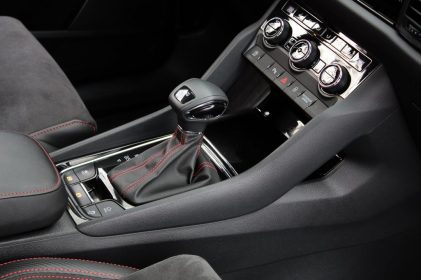
If you drive a Volkswagen, Audi, SEAT or Skoda with a DSG gearbox, you’re probably used to the smooth shifts and quick response—but if your gearbox has started jerking, slipping, or flashing up warnings, you’re not alone.
From mechatronic faults to clutch wear and unexpected juddering, DSG problems are all too common in VW Audi Group (VAG) vehicles. In this post, we’ll break down what’s going wrong, which UK cars are affected, and what your options are if your DSG transmission is starting to fail.
What Is a DSG Gearbox?
DSG stands for Direct Shift Gearbox—a type of dual-clutch automatic transmission used across the Volkswagen Group. Unlike traditional autos, DSGs use two separate clutches to pre-select gears, delivering rapid, seamless gear changes.
While the technology is clever, it’s also complicated—and that’s where the problems begin.
Common DSG Problems in the UK
These are the most frequently reported DSG faults in newer VAG cars:
Mechatronic Unit Failure
The mechatronic unit controls shifting, clutch actuation, and gear selection. If it fails, you’ll see warning lights, poor shifting, or complete gearbox shutdown. It’s one of the most common DSG failures in the UK.
Juddering or Hesitation at Low Speeds
Often caused by clutch wear or contaminated gearbox oil, especially in stop-start traffic. The car may feel like it’s struggling to engage first or reverse smoothly.
PRNDS Flashing on Dashboard
This is a classic symptom of DSG trouble. It usually points to an electrical or sensor fault—or a deeper issue in the mechatronic system.
Sluggish Gear Changes or No Drive
Some drivers report delayed engagement when setting off, or complete loss of drive. This may be caused by hydraulic pressure problems or worn internal components.
Oil Contamination or Fluid Leaks
DSG gearboxes require specific servicing intervals. Missed oil changes or seal failures can cause internal damage—particularly in the DQ250 and DQ381 wet clutch units.
Grinding or Clicking Noises
If you hear mechanical noise while shifting, it could be worn gears, damaged clutches, or an internal fault that’s only going to get worse.
Which VW Group Cars Are Affected?
The DSG gearbox is fitted to a wide range of Volkswagen Group vehicles. The three most commonly used DSGs in this period are:
- DQ200 (7-speed dry clutch)
- DQ250 (6-speed wet clutch)
- DQ381 (7-speed wet clutch) – Common in newer MQB platform vehicles
Affected UK models include:
- Volkswagen Golf / Passat / Polo / Tiguan / Touran / Arteon
- Audi A1 / A3 / A4 / Q2 / Q3 / A5 / A6 / A7 / Q7 / Q5 / RS Models
- SEAT Leon / Ibiza / Ateca / Arona
- Skoda Octavia / Superb / Fabia / Karoq / Kodiaq
Whether petrol or diesel, DSG issues can strike—especially if your car hasn’t had regular gearbox oil services or has been used for lots of short trips.
Why Do DSG Gearboxes Fail?
In short: complexity and sensitivity. DSG units have lots of moving parts, electronics, sensors and control units. While they’re great when new, wear and tear (especially on the clutch packs and mechatronic unit) builds up over time.
Other contributing factors include:
- Missed gearbox oil changes
- High torque in tuned or remapped cars
- Thermal stress from stop-start driving
- Software bugs and control unit faults
Even low-mileage DSGs can develop problems—and repairs are rarely cheap.
We specialise in buying cars with faults across the UK. Whether your car is still driving or stuck in the garage, we make it easy.
- No obligation quote open for 28 days
- Free collection from anywhere in the UK mainland
- Payment before collection
- No inspections, appointments or stress
- Rated Excellent by UK customers on Trustpilot
https://uk.trustpilot.com/review/www.sellyourproblemcar.com
Get your free quote today and find out what your car is still worth, even with major gearbox issues.
